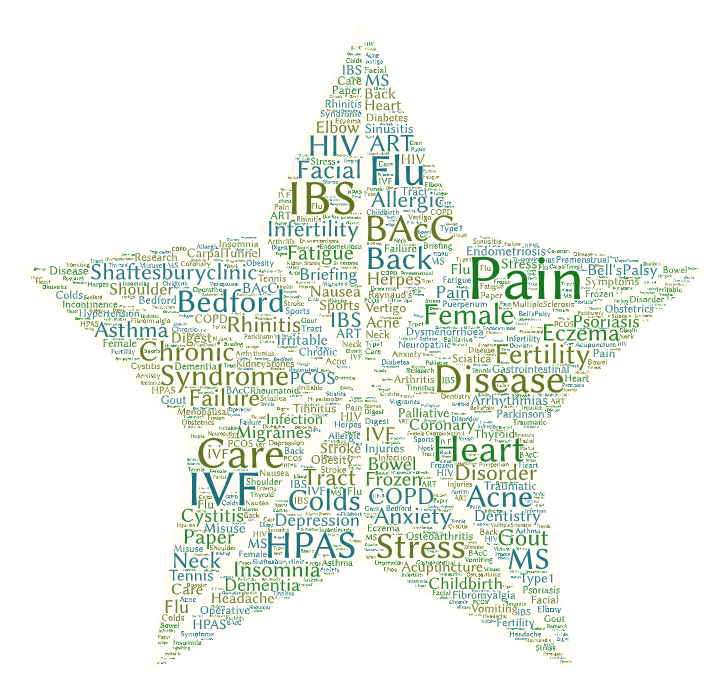Important to know: Chronic health conditions should be addressed under direct medical supervision of your GP or consultant, and acupuncture would be an adjunct or complement to usual care – we advise that you let you doctor know when you use this approach.
Research and Resources on Depression and Acupuncture:
A scholarly search of the available research papers on the terms “acupuncture” + “depression” yields over 107,000 papers, and narrowing this to “RCT” to identify Randomised Controlled Trials, gives over 11,600 results; of which 41% have been carried out since 2017 (Google Scholar). This suggests that acupuncture is being used traditionally and currently in this area, leading to a body of research being carried out, the pace of which has increased in recent years, indicating increased recognition that it is worthy of scientific appraisal regarding its potential role.
Interpreting the research:
When reading health research, it is important to know that Systematic Reviews or Meta Analyses of a large number of high-quality research studies are the very best way to be able to say to what extent a given treatment can address a condition, symptom, or set of symptoms. The next best level of evidence is the individual Randomised Controlled Study (RCT) which uses a systematic technique to compare two or more groups of patients receiving different treatments (or a treatment against a “control”, or no treatment). In acupuncture trials, the nature of the control group is of particular interest as it is hard to blind a patient to whether they are having a needle inserted or not, and even more challenging to blind the researcher/team to this.
The means and quality of how research is carried out varies considerably from country to country, and in terms of how an intervention is compared to another intervention (or a control). Of note is the fact that “sham” acupuncture (where needles are placed in apparently inert locations rather than traditional acupuncture points) is not really an inert process as it has physiological effects, so that comparing sham and “true acupuncture” may therefore not give a clear picture alone; but and form a part of a research body where acupuncture versus no treatment, vs conventional treatment or vs a different approach/modality also form part of the evidence base.
The n= figure (where quoted in research) tells you how many people were participants in the study, and usually the larger a study (when it is of good quality and design), the more likely it is to be reliable and applicable to larger populations. When (statistical) “significance” is discussed in view of studies it has a very particular meaning – it is the confidence in the data (using statistical tests) that tells us how likely a result could have just come about by chance. The lower the possibility of a chance result, the more likely it is due to the intervention in the experiment. When you are reading a trial/study, the “p” is the number telling us of significance, and this must be under 5% (or p less than 0.05) to mean we can say it is a (statistically) “significant” result.
The Research:
A large UK RCT into depression (MacPherson et al, 2013; n=755) compared patients under GP care for depression in three groups, i acupuncture, ii counselling or iii usual care alone. Compared to usual care, there was a statistically significant reduction in mean depression scores (as measured by the PHQ-9) at 3 months for both the acupuncture and the counselling groups, meaning acupuncture significantly reduced depression, this as much as did counselling. Some of the same researchers in the 2013 team (Hopton et al, 2014) also looked at the outcomes of the above study in secondary analysis of depression where there is also comorbid (concurrent) pain, published in the BMJ, where they found reductions in both pain and depression highest in the acupuncture group.
Acupuncture was also found cost effective in depression (Spackman et al, 2014; on review of MacPherson et al, 2013) as measured in QALY (an NHS measurement of quality adjusted life years gained by a treatment) in comparison to usual care alone and was also less costly per gain in QALY compared to counselling.
A recent Systematic Review & Meta-Analysis of Acupuncture for Depression (Tan et al, 2024) synthesised 20 RCT’s, (n=1376), concluding that acupuncture demonstrates considerable efficacy in reducing depressive symptoms, with good safety profile versus medication alone. Furthermore, a systematic review and meta-analysis of 18 RCTS (Dong et al, 2017) looked at depression related insomnia, finding acupuncture was promising for this as an approach.
A Cochrane systematic review of trials regarding acupuncture in depression (Smith et al, 2018) looked at 64 studies; n=7104 in total, found tentative evidence for reduction of the severity of depression, they were reserved in their findings by the quality of some of the evidence as regards the design of some of the trials, and the researchers called for further high quality studies. Armour et al, (2019) drew similar conclusions in a systematic review of 29 studies (n=2268), noting moderate-to-large effect sizes, but noting limitation in terms of risk of bias in some studies, and some being underpowered.
A systematic review of 207 studies of acupuncture for depression of different kinds (Zhang et al, 2010) found 20 RCTs for meta-analysis, and concluded that acupuncture was able to improve post stroke depression, and had a low side-effect risk. A systematic review and meta-analysis of 13 RCTs (n=1046; Chan et al, 2015), found a “significant difference in favor of acupuncture combined with selective serotonin reuptake inhibitors (SSRIs)” [sic].
A new systematic review and meta-analysis by Xu et al. (2023, n=920, 32 RCT’s) in Neuropsychobiology shows clinical evidence for the association of acupuncture with improvements in the symptoms of major depressive disorder on the Hamilton rating scale for depression. Researchers concluded “acupuncture or acupuncture plus antidepressants were significantly associated with reduced HAMD scores, with high-quality evidence.”
A recent randomized clinical trial with 74 patients found auricular acupuncture (ear acupuncture) safe and effective for depression, patients receiving acupuncture experiences greater symptom remission at 3 months than did control patients, although this was not statistically significant it outlies a positive trend and invites further research with larger cohorts, and 58% of patients within the ear acupuncture group had a reduction of at least 50% in the PHQ-9 score. PHQ-9 is a self-rates quastionnaire assessing depression symptoms (de Oliveira Rodrigues et al, 2023)
A very recent multicentre RCT (Wu et al, 2025)120 participants, moderate–severe major depressive disorder; MDD) compared intradermal acupuncture plus SSRIs vs SSRIs alone. Results showed enhanced symptom reduction and evidence of cerebral mechanism changes, supporting acupuncture as an adjunct therapy. The Hamilton Depression Rating Scale-17 (HAMD-17) after 6 weeks’ treatment was used as the primary outcome measure. Patients in the acupuncture plus SSRI group showed a statistically significant, larger reduction in depression scores than did the SSRI and sham groups. The researchers hypothesised the mechanism of action in that acupuncture may exert antidepressant effects by modulating striatal Frontal Connectivity.
Other studies have looked at depression secondary to other conditions, for example stroke, where a large Cochrane systematic review of trials looked at 31 trials (n=2257 in total) (Yang et al, 2016), again, there were identified methodological issues, but the area showed promise.
Another pilot, controlled trial (n=43; Man et al, 2014) used a combination of dense cranial electroacupuncture stimulation and body acupuncture for post-stroke depression, groups compared acupuncture + SSRIs vs sham (non-invasive) acupuncture + SSRIs. Again, positive trends were seen, but the study was small and only single-blinded, necessitating further, larger, double blinded studies.
A recent study (Xu et al, 2024; 16 RCTs; n=1315) reviewed RCTs showing acupuncture alleviated both gastrointestinal symptoms and comorbid anxiety/depression in Functional Dyspepsia (FD), reinforcing its systemic impact. The researchers found that acupuncture demonstrated marked superiority over placebo and acupuncture might have a positive effect on depression and anxiety in patients with FD.
Mechanisms of action:
More recently, studies and research have turned to measurable biomarkers as targets for looking at the effects of interventions, including acupuncture. We know acupuncture can affect certain biomarkers in the body, including neurotransmitters, as well as having measurable effects on the brain (that can be seen in MRI’s scans, for example). Studies such as Li et al, 2022 have looked at very specific gene expressions as biomarkers that can be targeted and measured for post stroke depression, so that for example in future studies they can be measured for their objective effects, alongside the other measures used that can be less objective (e.g. patient’s assessment of their own symptoms).
Regarding Your Individual Condition and Symptoms:
Whilst the scientific studies are of great interest to researchers and acupuncturists in terms of comparing protocols, for the patient not versed in research they are less accessible, which is why when we asked “can acupuncture work for my (condition or symptom) we are not able to give a simple yes or no response. We are able to tell you what experience we have had in our decades of experience in practise, of the types of outcomes we have seen in similar cases, and give you an idea of our level of experience and knowledge in that area, and how this could relate to your own individual situation. For this, we recommend booking a free telephone consultation where we can answer any questions you have and give a realistic appraisal of what acupuncture may be able to provide.
Resources:
British Acupuncture Council Research Digest – Mental Health Depression section (toward the base of the document)
British Acupuncture Council evidence based factsheet about Depression including specific research, trials and mechanisms of action for acupuncture in this condition.
References:
Armour, M., Smith, C.A., Wang, L.Q., Naidoo, D., Yang, G.Y., MacPherson, H., Lee, M.S. and Hay, P., 2019. Acupuncture for depression: a systematic review and meta-analysis. Journal of clinical medicine, 8(8), p.1140.
Chan, Y.Y., Lo, W.Y., Yang, S.N., Chen, Y.H. and Lin, J.G., 2015. The benefit of combined acupuncture and antidepressant medication for depression: a systematic review and meta-analysis. Journal of Affective Disorders, 176, pp.106-117.
Dong, B., Chen, Z., Yin, X., Li, D., Ma, J., Yin, P., Cao, Y., Lao, L. and Xu, S., 2017. The efficacy of acupuncture for treating depression-related insomnia compared with a control group: a systematic review and meta-analysis. BioMed research international, 2017.
Hopton, A., MacPherson, H., Keding, A. and Morley, S., 2014. Acupuncture, counselling or usual care for depression and comorbid pain: secondary analysis of a randomised controlled trial. BMJ open, 4(5).
Li, M., Ding, R., Yang, X. and Ran, D., 2022. Study on Biomarkers Related to the Treatment of Post-Stroke Depression and Alternative Medical Treatment Methods. Neuropsychiatric Disease and Treatment, 18, pp.1861-1873.
MacPherson, H., Richmond, S., Bland, M., Brealey, S., Gabe, R., Hopton, A., Keding, A., Lansdown, H., Perren, S., Sculpher, M. and Spackman, E., 2013. Acupuncture and counselling for depression in primary care: a randomised controlled trial. PLoS Med, 10(9), p.e1001518.
Man, S.C., Hung, B.H., Ng, R.M., Yu, X.C., Cheung, H., Fung, M.P., Li, L.S., Leung, K.P., Leung, K.P., Tsang, K.W. and Ziea, E., 2014. A pilot controlled trial of a combination of dense cranial electroacupuncture stimulation and body acupuncture for post-stroke depression. BMC complementary and alternative medicine, 14(1), pp.1-8.
de Oliveira Rodrigues, D.M., Menezes, P.R., Silotto, A.E.M.R., Heps, A., Sanches, N.M.P., Schveitzer, M.C. and Faisal-Cury, A., (2023). Efficacy and safety of auricular acupuncture for depression: a randomized clinical trial. JAMA Network Open, 6(11), pp.e2345138-e2345138.
Smith, C.A., Armour, M., Lee, M.S., Wang, L.Q. and Hay, P.J., 2018. Acupuncture for depression. Cochrane database of systematic reviews, (3).
Spackman, E., Richmond, S., Sculpher, M., Bland, M., Brealey, S., Gabe, R., Hopton, A., Keding, A., Lansdown, H., Perren, S. and Torgerson, D., 2014. Cost-effectiveness analysis of acupuncture, counselling and usual care in treating patients with depression: the results of the ACUDep trial. PloS one, 9(11), p.e113726.
Tan, Y., Duan, R. and Wen, C., 2024. Efficacy of acupuncture for depression: a systematic review and meta-analysis. Frontiers in neuroscience, 18, p.1347651.
Wu, X., Tu, M., Yu, Z., Cao, Z., Qu, S., Chen, N., Jin, J., Xiong, S., Yang, J., Pei, S. and Xu, M., 2025. The efficacy and cerebral mechanism of intradermal acupuncture for major depressive disorder: a multicenter randomized controlled trial. Neuropsychopharmacology, 50(7), pp.1075-1083.
Xu, G., Xiao, Q., Huang, B., Lei, H., Yin, Z., Huang, L., Zhou, Z., Tian, H., Huang, F., Liu, Y. and Sun, M., 2023. Clinical Evidence for Association of Acupuncture with Improved Major Depressive Disorder: A Systematic Review and Meta-Analysis of Randomized Control Trials. Neuropsychobiology, 82(1), pp.1-13.
Xu, Z., Zhang, X., Shi, H., Liang, M., Ning, F., Wang, Q. and Jia, H., 2024. Efficacy of acupuncture for anxiety and depression in functional dyspepsia: A systematic review and meta-analysis. PloS one, 19(3), p.e0298438.
Yang, A., Wu, H.M., Tang, J.L., Xu, L., Yang, M. and Liu, G.J., 2016. Acupuncture for stroke rehabilitation. Cochrane Database of Systematic Reviews, (8).
Zhang, Z.J., Chen, H.Y., Yip, K.C., Ng, R. and Wong, V.T., 2010. The effectiveness and safety of acupuncture therapy in depressive disorders: systematic review and meta-analysis. Journal of affective disorders, 124(1-2), pp.9-21.
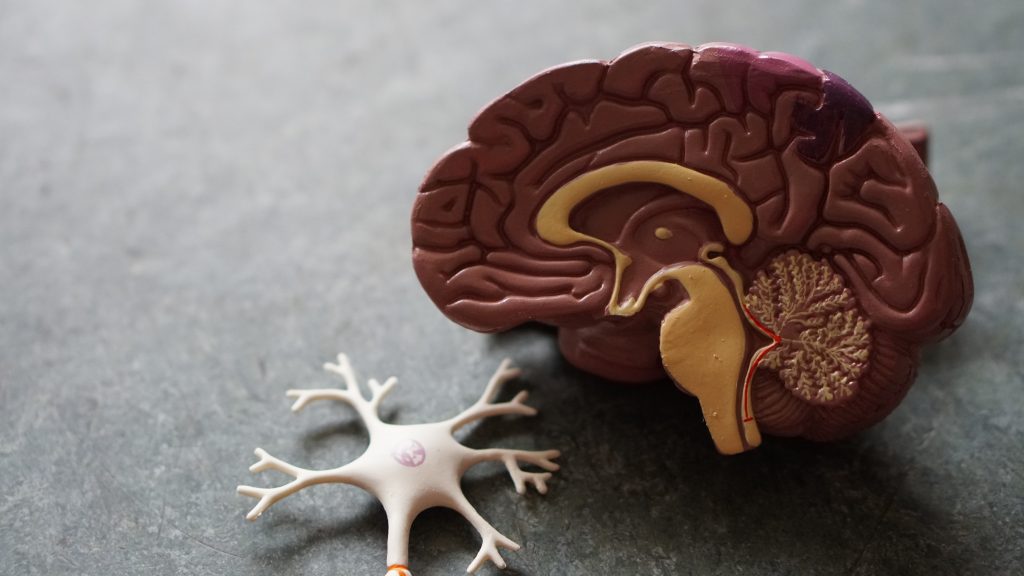
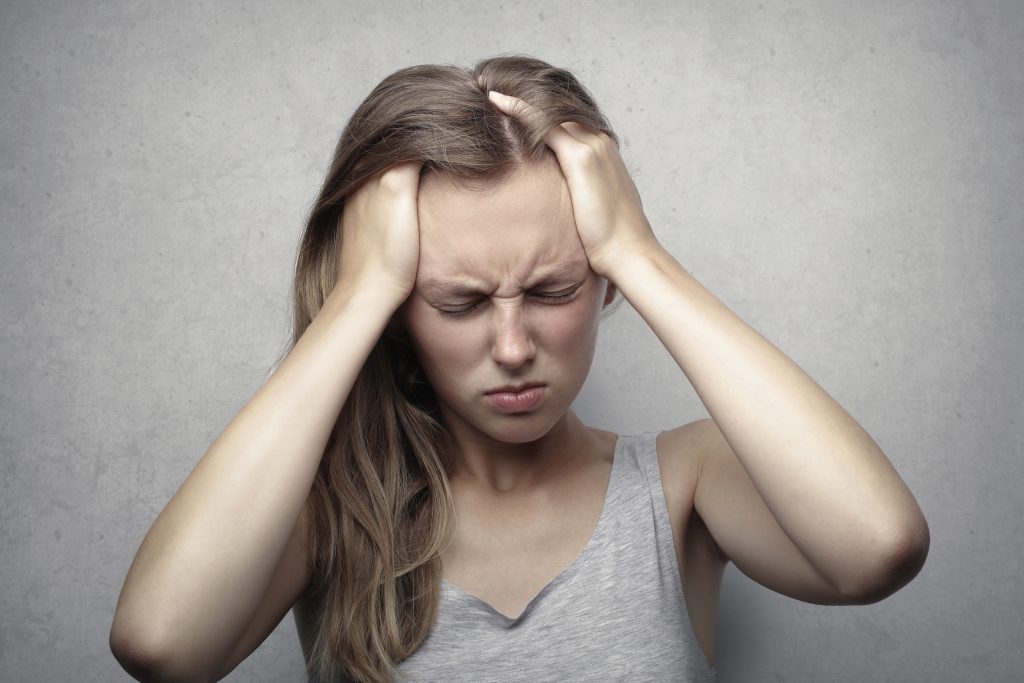


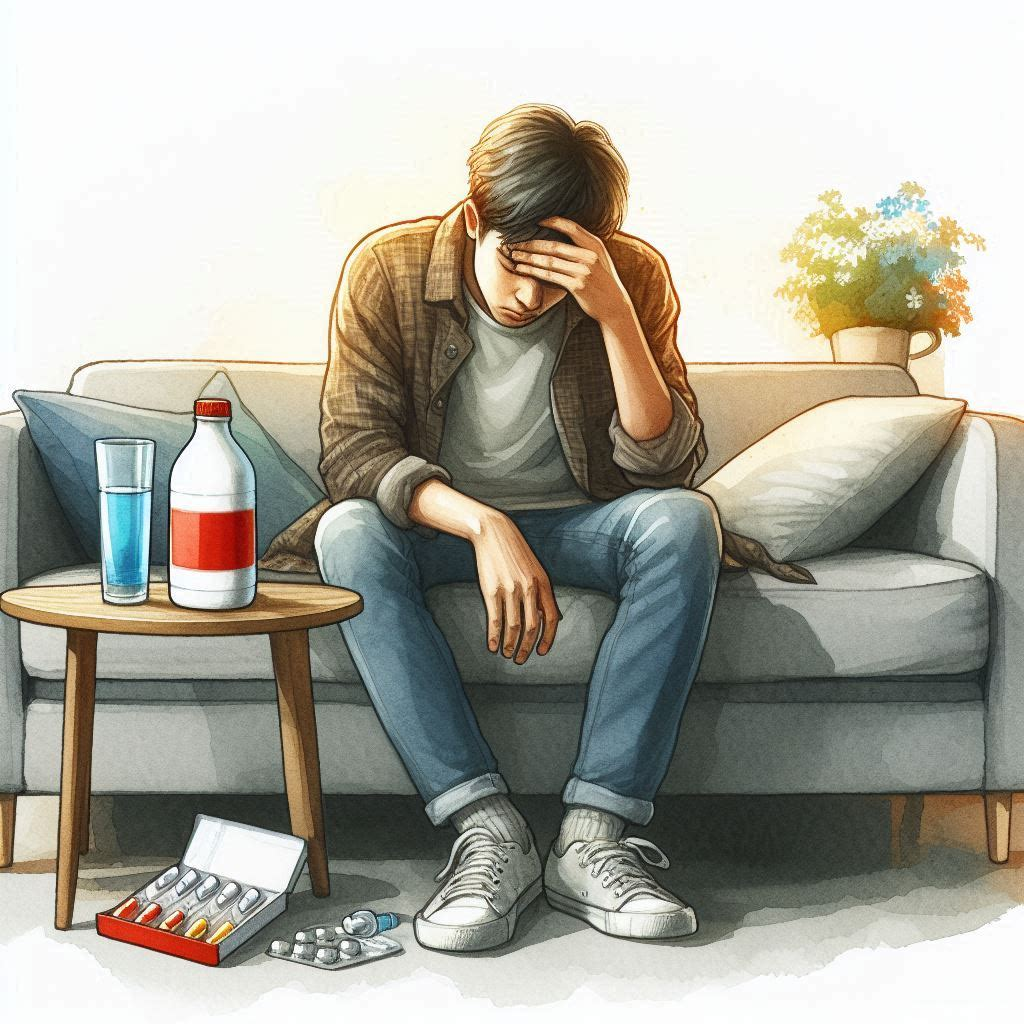
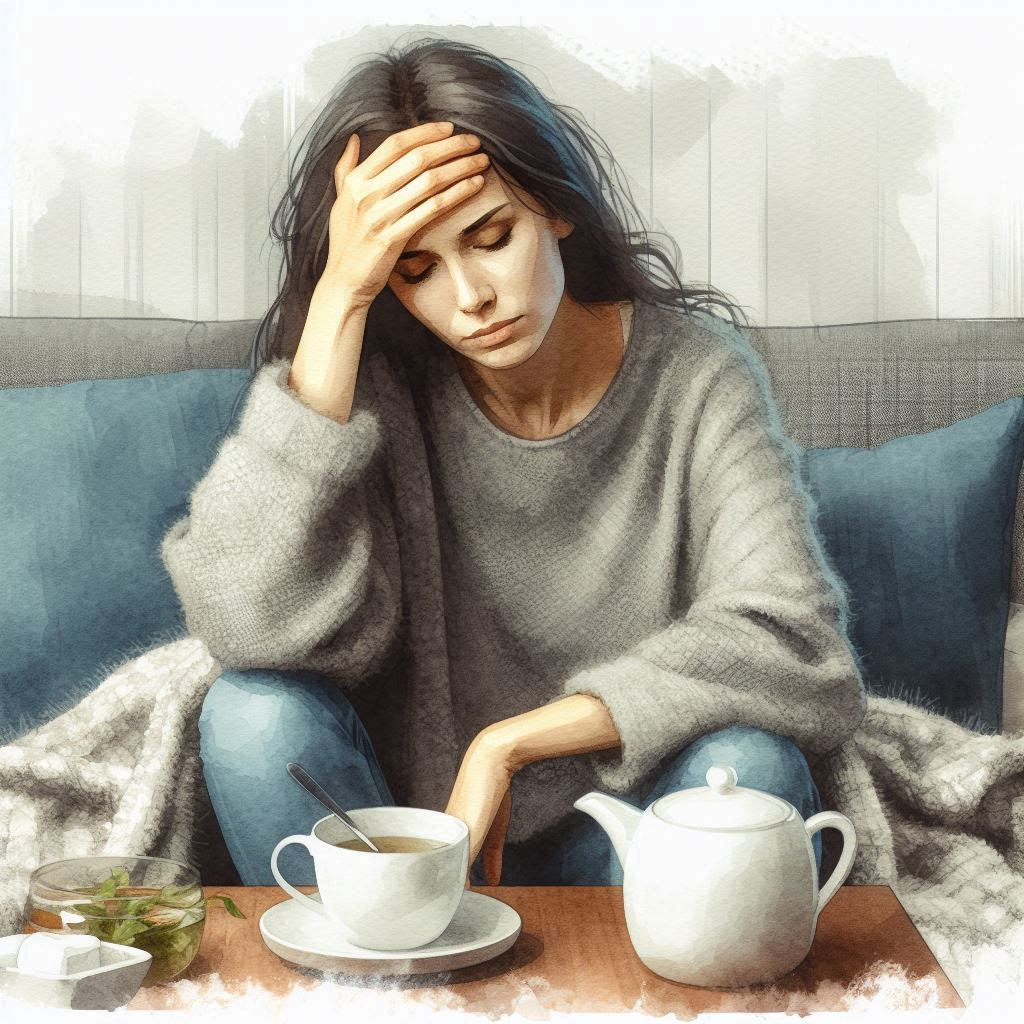
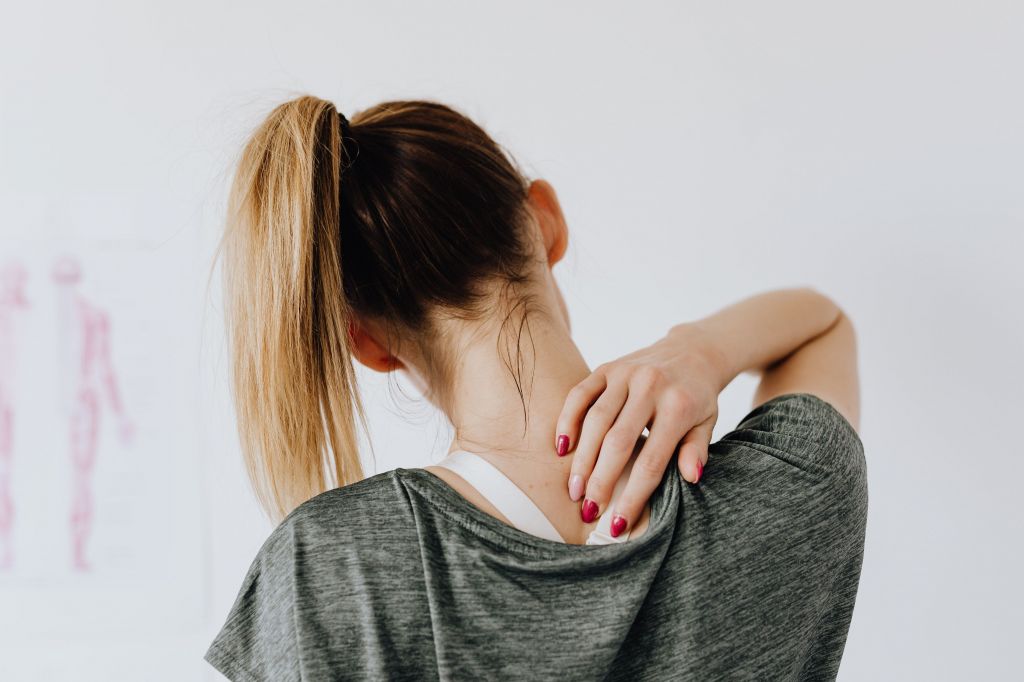
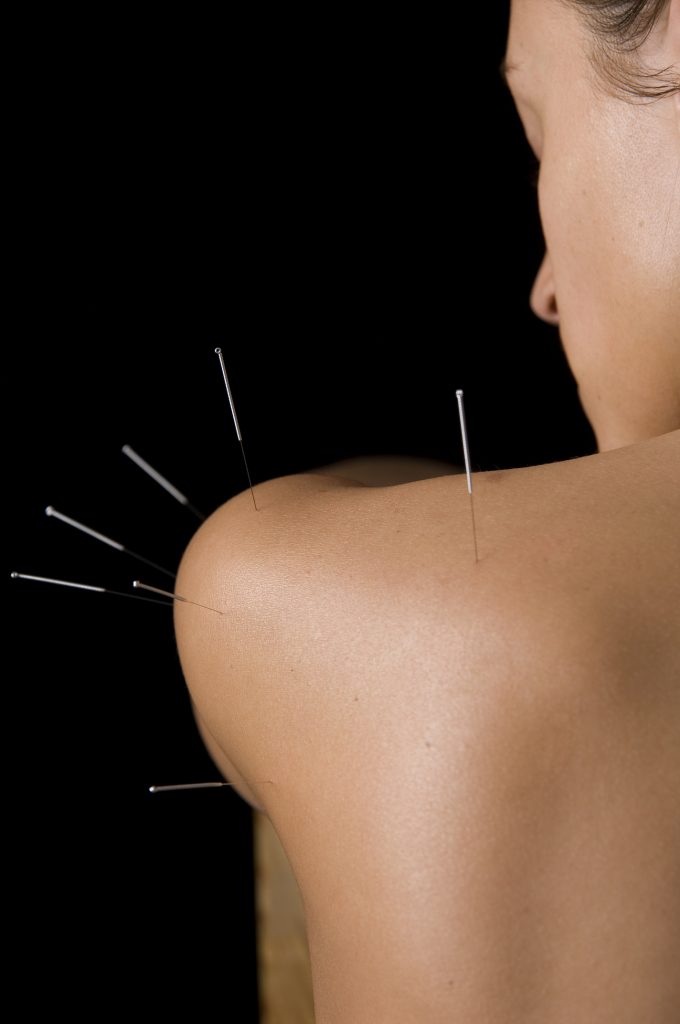

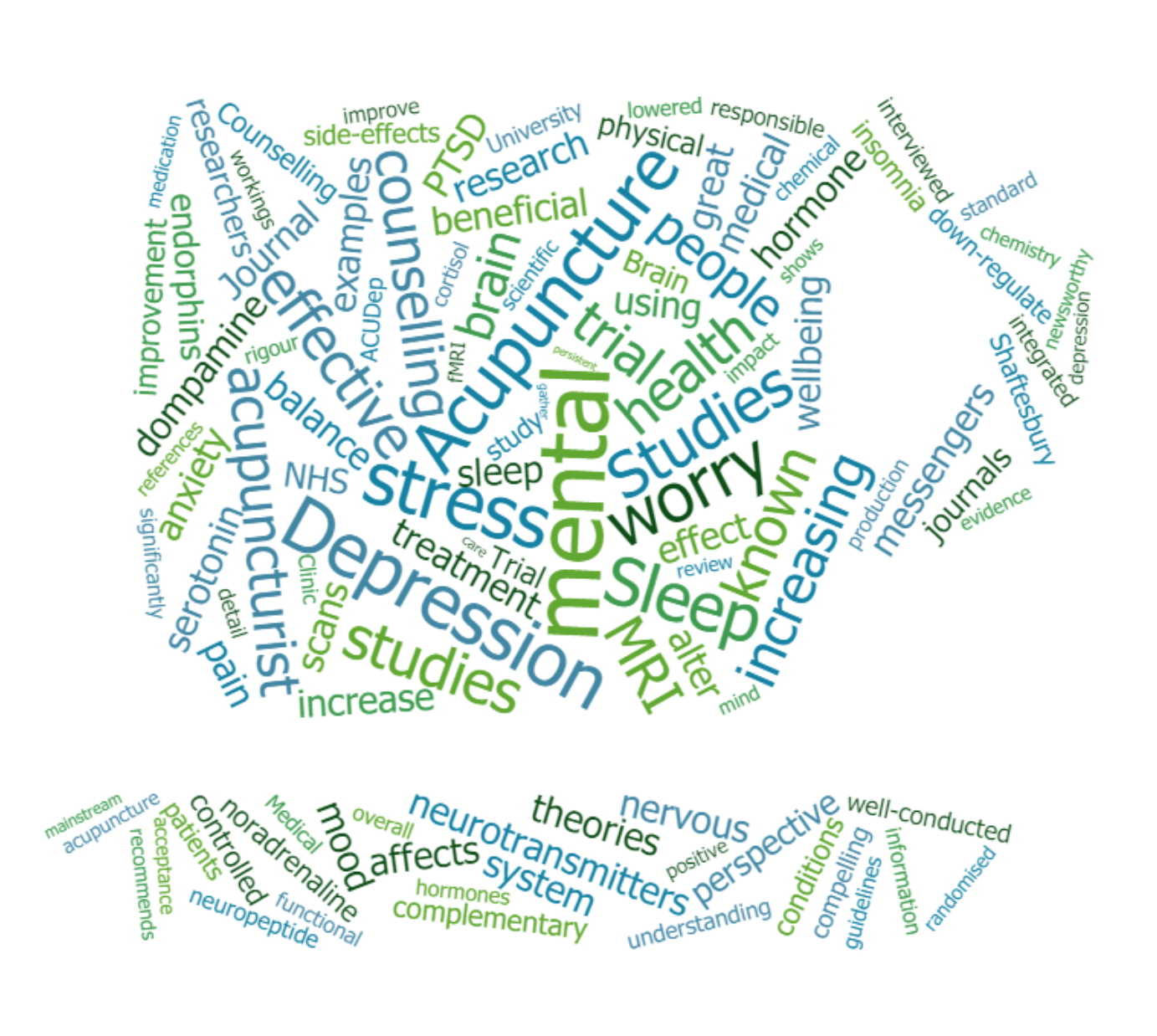
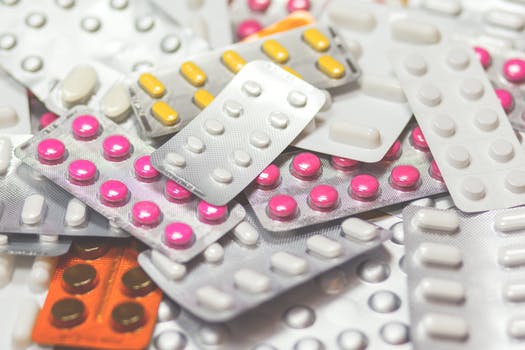
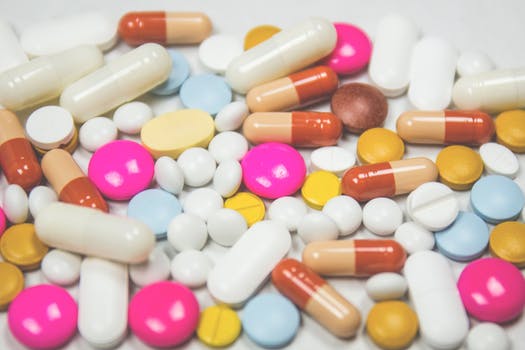 in particular if you are using over the counter medications, they can advise you of contraindications and interactions they may have with your prescribed medications.
in particular if you are using over the counter medications, they can advise you of contraindications and interactions they may have with your prescribed medications. The research evidence for acupuncture is growing, and we find that medical professionals are more and more aware of what we do, in some cases recommending acupuncture for particular conditions, so be sure to tell you GP if you are thinking of acupuncture, and keep them up to date on how you are getting along.
The research evidence for acupuncture is growing, and we find that medical professionals are more and more aware of what we do, in some cases recommending acupuncture for particular conditions, so be sure to tell you GP if you are thinking of acupuncture, and keep them up to date on how you are getting along.